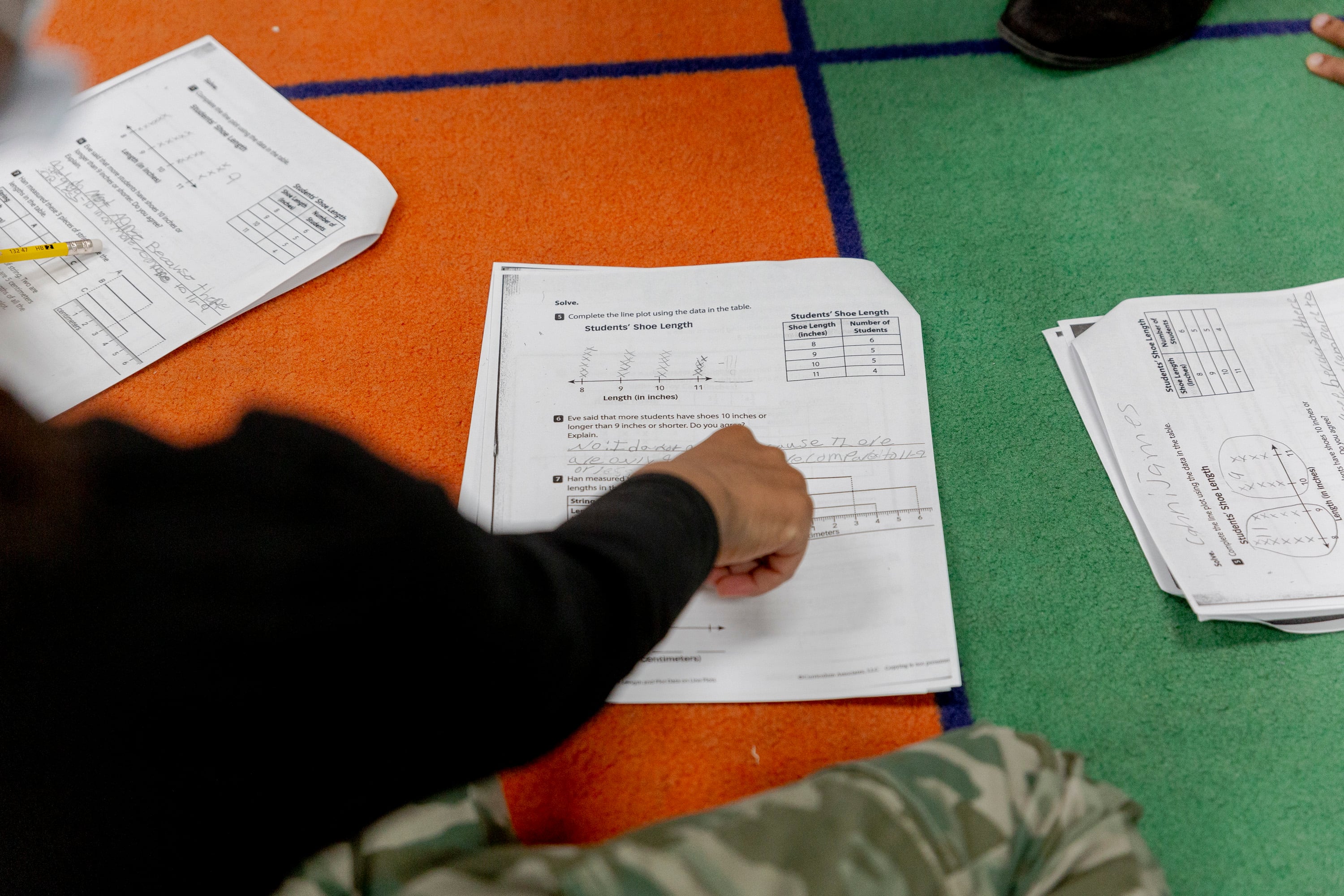Sign up for Chalkbeat Indiana’s free daily newsletter to keep up with Indianapolis Public Schools, Marion County’s township districts, and statewide education news.
A $15 million program that gave thousands of Indiana families cash for tutoring will wind down about a month earlier than anticipated due to unexpected heavy use that sapped its available funding – leaving students without extra support ahead of state testing.
Indiana Learns was a first-in-the-nation initiative that gave federal COVID relief funding directly to families for tutoring services to catch up after pandemic disruption starting in 2022. The program, administered by Indianapolis-based nonprofit The Mind Trust, expanded after another legislative change in 2023 to provide more tutoring funds, reach more students, and also allow tutoring during the school day. That law also changed how the money was distributed, from a one-time grant of $1,000 to an amount “subject to available funding.”
Operators hope the program will return with new state and grant funding next year, but funding from the next state budget is not guaranteed.
Like other tutoring programs around the country, Indiana Learns always expected to need new funding sources as ESSER came to an end. In a presentation to the State Board of Education in November, Mind Trust Executive Director Brandon Brown said the program had enough funding to last until the next state testing window.
But a notice to providers sent Feb. 14 and shared with Chalkbeat said the program would actually wind down on March 15. Only students with funds remaining in their accounts will be able to use tutoring services through that date, and new funds would no longer be added to student accounts.
“We wanted to go up to the start of ILEARN, but the program was pretty popular with families and we didn’t know how much would be allocated to the program,” said Kateri Whitley, senior communications director at The Mind Trust. The summative state testing window begins in April — some schools have been piloting “checkpoints” in earlier months.
Until this point, the program had replenished student accounts, Whitley said. That meant students who had been attending tutoring and whose accounts were depleted to a certain threshold would see their accounts replenished to $1,000.
Not being able to predict how many student accounts would be replenished – combined with the popularity of the program – means that it needed to end early, Whitley said. The program also does not want to spend all of its funding this year; it’s not clear how much remains.
“There’s a high likelihood it will continue and we don’t want to spend down every single cent this program year,” Whitley said.
But the decision has caused turmoil among schools and tutoring providers where the program was in use.
Several educators who spoke to Chalkbeat anonymously for fear of retaliation said the end date of the program came as a surprise and will leave students without tutoring support ahead of state testing. Furthermore, they said the lack of warning means that students who don’t have funds left in their accounts effectively have already had their final tutoring sessions, potentially without a final assessment of their skills, or a goodbye to their tutors.
The program had 23,000 enrolled students as of November last year. To receive the funds, students had to be in grades 3-8 at a public or private school, qualify for free or reduced price lunch, and score below proficiency in either math or English language arts.
As of Thursday, there were 15,000 students enrolled.
Students who still have funds in their accounts can use them for sessions until March 15. The Mind Trust did not say by deadline how many students still had funds to use, or how many students had had their accounts replenished.
Future funding sources uncertain
The program has paused for the summer in previous years in order to preserve tutoring funds for when they were most needed.
Whitley said The Mind Trust expects the program to return in the 2025-26 school year after the March pause, likely through funding in the next state budget. She also pointed to new grant funding from Accelerate, a national nonprofit, earmarked to keep the program going.
Lawmakers passed a draft of the budget Thursday. While it does not include a specific line item for Indiana Learns, it does give the Indiana Department of Education an $86 million Freedom and Opportunity block grant meant to support initiatives that improve student learning recovery.
In a statement, department representatives did not answer whether any of these funds would be used to support Indiana Learns in the future, highlighting instead other priorities to expand the new state testing checkpoint pilot and recruit teachers.
“As budget discussions continue, we will work with Governor Braun and the General Assembly to continue to measure return on investment and determine the best way to double-down on those initiatives that … positively move the needle for students,” the statement said.
Aleksandra Appleton covers Indiana education policy and writes about K-12 schools across the state. Contact her at aappleton@chalkbeat.org.






